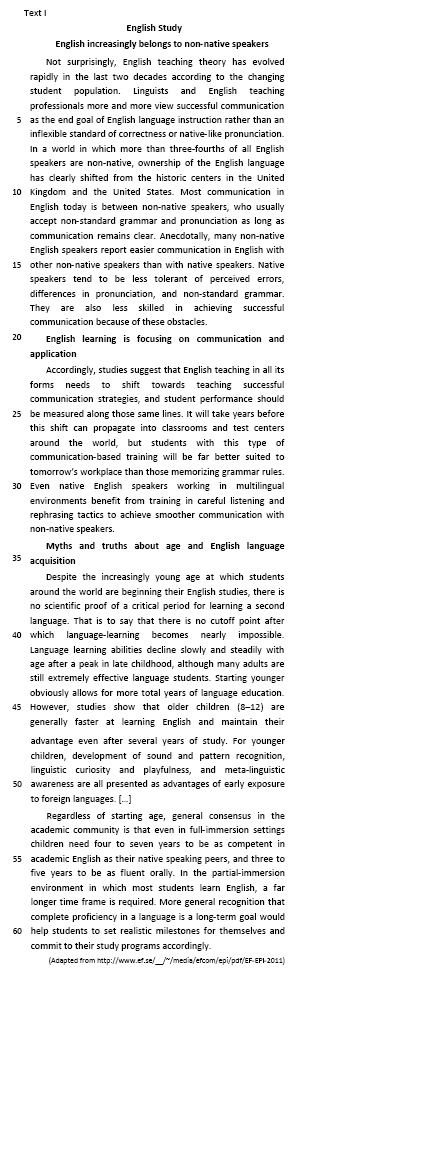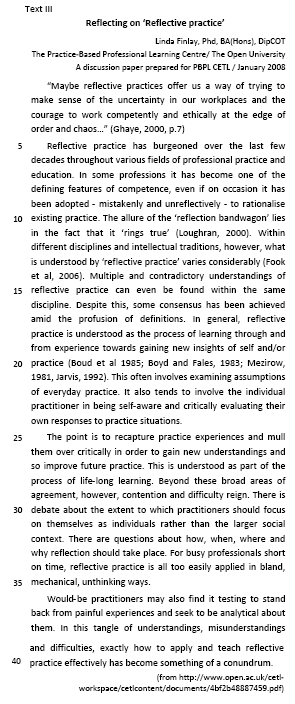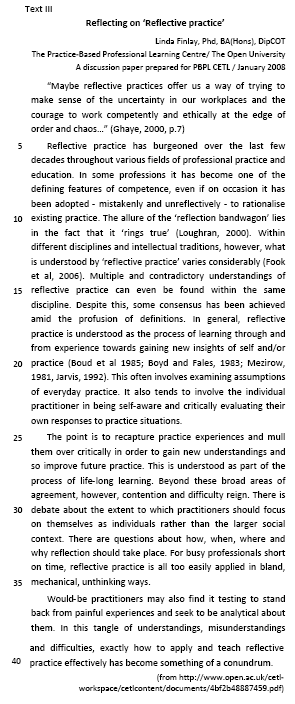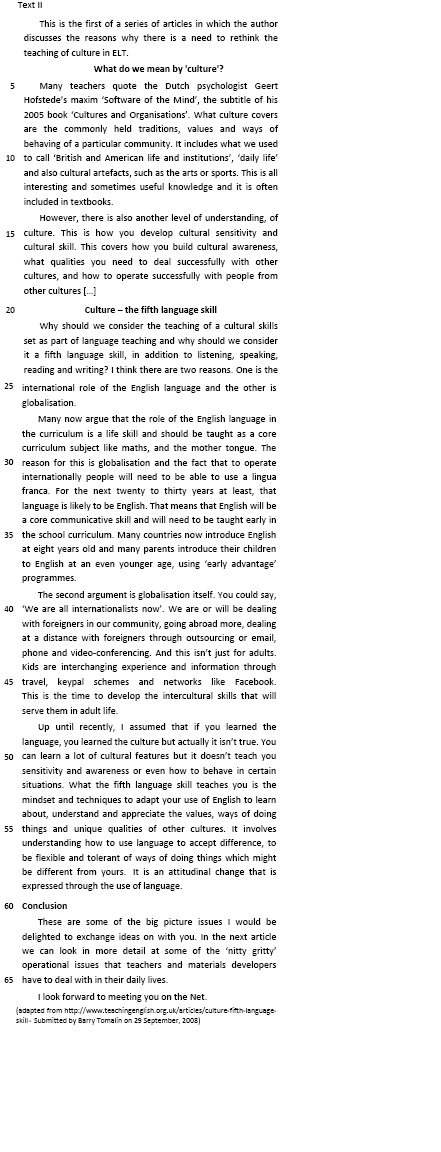Read Text I and answer questions 01 to 10:

The following statements reflect some interesting observations the author makes:
I. Non?native English speakers tend to find interaction with other non?natives less difficult than carrying out conversational exchanges with natives.
II. Native English speakers have a lot to gain if they practice ways in which they may communicate more easily with non-native speakers.
III. Native speakers of English are always ready to put up with mistakes in grammar and pronunciation that non?natives may make. Choose the correct answer:
Read Text III and answer questions 16 to 30:

According to Text III, it is assumed that reflective practice demands some decisions which include
Read Text III and answer questions 16 to 30:

As regards the conclusion the author arrives at, analyse the assertions below.
I. Adopting reflective teaching skilfully is quite useless.
II. In sum, practicing reflective teaching is not easy.
III. After all, reflective teaching will remain an impossible utopia.
Choose the correct answer.
Read Text III and answer questions 16 to 30:

Amid in “ has been achieved amid the profusion“ (lines 16 and 17) has the same meaning as
Read Text III and answer questions 16 to 30:

In the sentence “ would?be practitioners may also find it testing“ (line 36), the author means they may find it
Read Text I and answer questions 01 to 10:

In the first paragraph, the author makes clear to the reader that
Read Text I and answer questions 01 to 10:

Observe the sentence “ in the last two decades according to the changing student population“ (lines 2 and 3). Here the word “ changing“ is a(n)
Read Text I and answer questions 01 to 10:

According to the text, “ For younger children, development of sound and pattern recognition, linguistic curiosity and playfulness … are all presented as advantages of early exposure to foreign languages“ (lines 47?51). Indicate the alternative which best describes the method which is in line with this statement (based on Jalil and Procailo, 2009, in http://www.pucpr.br/eventos/educere/educere2009/anais/pdf/2044_2145.pdf\):
Read Text III and answer questions 16 to 30:

The main objective of this paper is to present
Read Text III and answer questions 16 to 30:

Linda Finlay states that “ In general, reflective practice is understood as the process of learning through and from experience towards gaining new insights of self and/or practice“ (lines 17?20). This quote reflects one of the competences expected from foreign language teachers in Brazil. Indicate the alternative that paraphrases this competence.
Read Text III and answer questions 16 to 30:

In the sentence “ reflective practice is all too easily applied in bland, mechanical, unthinking ways“ (lines 34 and 35), the reader can notice that there is some
Read Text I and answer questions 01 to 10:

The main idea of Text I is the
Read Text I and answer questions 01 to 10:

In relation to learning a second language as the text presents it,
mark the statements below as true T or false F.
() Teenagers learn slowly because they have many other interests.
() There is no evidence of a best moment for starting to learn a second language.
() Adults learn faster than children because they have more focus and life experience. The statements are, respectively,
Read Text I and answer questions 01 to 10:

rather than in “ rather than an inflexible standard of correctness or native-like pronunciation“ (lines 5 and 6) can be replaced by:
Read Text II and answer questions 11 to 15:

The text predicts that “ English will be a core communicative skill“ (lines 33 and 34). To this purpose, some activities have already been proposed (see Almeida Filho and Barbirato, 2000). All the statements below mention activities where this goal can be achieved, except

